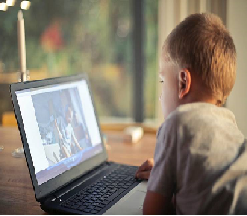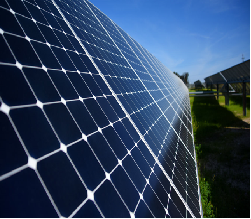February 2019 Sustainable Development
Read the articles selected in February 2019
Global Opportunity Explorer 2019
Source: https://www.unglobalcompact.org
Climate change is the X factor of the global economy, the element which multiplies the risks and puts new rules of the game. The future of businesses depends on the capacity to understand the opportunities offered by a low-carbon economy, and to answer with new mindsets and cross-sector solutions.
Read more:
https://www.unglobalcompact.org/docs/publications/GOE_2019_Insights.pdf
European policies on climate and energy towards 2020, 2030 e 2050
Source: European Parliament
The European committment to the reduction of greenhouse gases and the implementation of renewables has preceded the Paris Agreement and is a proper goal of the Treaty on the Functioning of the European Union. This briefing describes the evolution of the climate and energy policies towards the Paris target .
Read more:
http://www.europarl.europa.eu/RegData/etudes/BRIE/2019/631047/IPOL_BRI(2019)631047_EN.pdf
Global Material Resources Outlook to 2060
Source: oecd.org
The growth of the population and the global demand entails the rise in the consumption of material resources, whose use and disposal have a decisive impact on the environment. Technology and targeted policies allow the shift to a circular economy and the achievement of the SDGs.
Read more:
L’habitat de demain à l’ombre des métropoles
di Sybille Vincendon
Source: Libération, 12 February
The Institut Terra Nova has presented a report on the dwellings in the next twenty years. If no futuristic scenario appears in the skyline, the urbanisation, the change of work, of the family and the demographic trends will affect the way we live.
International Mother Language Day
Source: http://www.un.org
Education systems around the world speak a few languages, and an immense linguistic and cultural heritage risks to get lost even at school. This Day intends to promote the use of proverbs to tell in our first tongue how we think the peace and the conflicts, the resilience and the harmony.
Read more:
http://www.un.org/en/events/motherlanguageday/
Youth and the 2030 Agenda for sustainable development
Source: https://www.un.org
The 2030 Agenda challenges reveil their real, serious side if we think on youth. On the shoulder of the most vulnerable part of the world’s population will be built the sustainable development. Their rights and aspirations do matter more than their workforce and have a place in the 2030 Agenda.
Read more:
Unequal exposure and unequal impacts: social vulnerability to air pollution, noise and extreme temperatures in Europe
Source: European Environment Agency
There are remarkable, both regional and social differences in the esposure to environmental risks in Europe, as well as in our ability to cope with them. More coherence between health, poverty and climate policies while focusing on vulnerable groups could bring benefits to the public health.
Read more:
file:///C:/Users/Roberta%20Capo/Downloads/TH-AL-18-022-EN-1%20Unequal%20exposure.pdf
Growth can overcome the loss of faith in global co-operation
By Christine Lagarde
Source: The Economist, 19 September

The SDGs are the antidote to the lost of trust in the institutions, and the rise of social unjustice in the most advanced economies. They represent the hope in the future, when incomes inequalities and inequalities of opportunities are undermining the sense of community and the idea of a meritocratic society .
Read more:
Plummeting number of insects threatens “catastrophe for planet”
By Damian Carrington
Source: The Guardian, 11 February
Insects are the most various and abundant animal species in the Planet. Intensive agriculture, urbanization and climate change are causing a mass extinction, which affects all the forms of life and threatens in a few decades even the human survival.
Going for green(er) growth – what can indicators tell us?
Source: http://www.oecd.org
Green growth is as much an elusive as an inexhaustible concept, which indicates the ties between every economic activity and one broadly-defined environment. A set of key indicators identify the structural reform priorities for long-term economic growth and well-being.
Read more:
Environmental rule of law
Source: https://wedocs.unep.org
The thought about Sustainibility in the intersection of environmental, socio-economic and public health claims has led to the development of a national and international environmental legislation more and more prolific, though often lacking the rule of law, crucial for the necessarity and effectivity of legislative declarations.
Read more:
Humanitarian action for children 2019
Source: https://www.unicef.org
Children growing up in a conflict or in emergency are the most exposed to traumatic events and violence seen as the normality, which will be impacting their whole development. Humanitarian programmes help children to restore their sense of stability and normality also through education initiatives.
Read more:
https://www.unicef.org/sites/default/files/2019-01/Humanitarian-action-for-children-2019-eng.pdf
The EAT-Lancet Commission on Food, Planet, Health
Source: http://asvis.it

Food has the power to condition both the human and the environmental health. Food production is the first factor responsible for environmental degradation. A plant- based nutrition with fewer animal proteins promises to be the source of welfare for all the living beings and the driver of a cultural and societal change.
Read more:
https://eatforum.org/content/uploads/2019/01/EAT-Lancet_Commission_Summary_Report.pdf
Financing Climate Futures
Source: http://www.oecd.org/
This report by the Oecd, UN Environment and the World Bank highlights how climate challenge requires a systemic transformation, based on planning, innovation, finance, development , involving all the infrastructures that underpin our civilization and cities.
Read more:
https://read.oecd-ilibrary.org/environment/financing-climate-futures_9789264308114-en#page1
Global environmental consequences of twenty-first-century ice-sheet melt
By Nicholas Golledge etc.
Source: Nature, 6 February
As mass loss from the Antarctic and Greenland ice is accelerating , the global sea level rising and the Atlantic overturning circulation slowing, the ice-ocean- atmosphere feedbacks that may arise as a consequence of ice-sheet melting, though spatially variable, will affect the Earth system with societal and economic consequences.
Read more:
https://www.nature.com/articles/s41586-019-0889-9
Children and Young People’s Mental Health in the Digital Age
Source: http://www.oecd.org

Although it is not clear the distinction between cause and effects in the relation between a greater (mostly night-time and emotional) use of social media, and anxiety and depression in children and youngs, social media have a large impact on their psychic health , which can be also positive, if their use is moderate.
Read more:
Tracking Universal Health Coverage
Source: WHO & World Bank

Universal health coverage is not only a human right, but also an investment in human capital, as it is shown by the intersection of the SDGs. In the lack of precise data on this point, it’s important to promote the commitment of countries to measuring their progress through key indicators.
Read more:
http://documents.worldbank.org/curated/en/640121513095868125/pdf/122029-WP-REVISED-PUBLIC.pdf
La moitié de l’humanité
By Christian Losson
Source: Libération, 21 January
The annual report on inequalities by Oxfam highlights a peak in the concentration of wealth in the hands of the richest, whereas the access to the healthcare and the essential public services gets ever more difficult. A democratic urgency which underestimates the growth of the sense of revolt in the population.
The thrillion-dollar question: how can we unlock the money needed to transition to a low-carbon economy?
By Geraldine Ang
Source: oecd.org

This crucial question is to be translated into how to attract private sources of capital in support of the transition to a low-carbon economy, since public finance alone cannot face all the infrastructure investments needed. Governments and public institutions should start mobilizing private sources of capital.
Read more:
How humans get in the way of clean water
By Lindzi Vessel
Source: Scientific American, 26 January

Household technology can deliver drinking water in emergencies to the poorest regions of the world. Superficiality and cultural barriers hinder things to change through the harnessing of every resource and knowledge whenever governments policies are impotent.
Read more:
https://www.scientificamerican.com/article/how-humans-get-in-the-way-of-clean-water/
Info
- Pubblicato il : 04/03/2019 Modificato il : 04/04/2019

